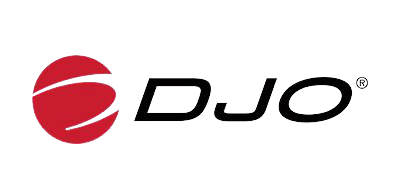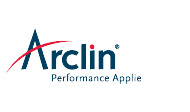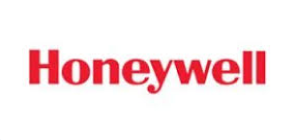Eternity Insights has published a new study on Global Crude Oil Carrier Market focusing on key segments as by Type (VLCC/ULCC, Suezmax, Aframax, Panamax), by Application (Crude, Gasoline, Diesel, Others), and by region. This deep dive re-search report highlights the market and competitive intelligence across the key segments of the mar-ket. The report also considers the impact of COVID-19 on the global Crude Oil Carrier Market.
The report considers 2018-2020 as historic period, 2021 as base year, and 2022-2028 as forecast period. The report includes quantitative analysis of the market supported by the market drivers, challenges, and trends to accurately map the market scenario and competition. Moreover, key insights related to market having direct impact on the market will also be covered.
Crude Oil Carrier Market report is based on robust research methodology designed using blend of research ap-proaches developed using secondary/desk research and validated through the primary research and expert insights. Eternity Insights also uses paid data bases such as FACIVA, Hoovers, and other bench-marking and forecasting tools to provide accurate statistical analysis of supply and demand trends.

To learn more about this report

To learn more about this report
Geographically, the market is categorized in to five regions as North America, Europe, Asia Pacific, Latin America, and the Middle East and Africa. North America region dominates the global Crude Oil Carrier market in terms of demand generation. The Crude Oil Carrier market in Asia Pacific region is expected to grow at significantly high growth rate. The regional market is further sub-segmented and analyzed at granular level across key countries. The report will include market size and forecast for Crude Oil Carrier market for below listed coun-tries across each region.
North America (U.S. and Canada), Europe (Germany, France, Italy, UK, Spain, and Rest of Europe), Asia Pacific (China, India, Japan, Australia, and Rest of Asia Pacific region); Latin America (Brazil, Mexico, and rest of the Latin America); Middle East and Africa (GCC, South Africa, and Rest of the Middle East and Africa).

To learn more about this report
The global Crude Oil Carrier market analysis report covers detailed analysis of competitive scenario across globe. The report includes profiles of leading players covering below details
| Report Attributes | Details |
| The market size value in 2021 | USD XX.XX Million |
| CAGR (2021 - 2028) | XX.XX % |
| The Revenue forecast in 2028 | USD XX.XX Million |
| Base year for estimation | 2021 |
| Historical data | 2018-2019 |
| Forecast period | 2022-2028 |
| Quantitative units |
|
| Report coverage | Revenue forecast, company ranking, competitive landscape, growth factors, and trends |
| Segments covered | By Type Outlook, Application Outlook, Regional Outlook |
| By Type Outlook | VLCC/ULCC, Suezmax, Aframax, Panamax |
| By Application Outlook | Crude, Gasoline, Diesel, Others |
| Regional scope | North America, Europe, Asia Pacific, Latin America, Middle East & Africa |
| Country scope | U.S., Canada, U.K., Germany, France, BENELUX, China, India, Japan, South Korea, Brazil, Saudi Arabia, UAE, Turkey |
| Key companies profiled | Maersk Tankers, China Shipping Tanker, Essar Shipping, Kuwait Oil Tankers, Tankers International, OSG Ship Management, Keystone Alaska, Alaska Tanker |
| Customization Available | Yes, the report can be tailored to meet your specific requirements. |
1 Methodology and Scope
1.1 Market segmentation & scope
1.2 Information Procurement
1.2.1 Purchased Database
1.2.2 Eternity’s Internal Database
1.2.3 Secondary sources & third-party perspectives
1.2.4 Primary Research
1.3 Information analysis
1.4 Market formulation & data visualization
1.5 Data validation & publishing
2 Executive Summary
3 Crude Oil Carrier Market Variables, Trends & Scope
3.1 Market Dynamics
3.1.1 Market Driver Analysis
3.1.2 Market Restraints
3.1.3 Market Challenge Analysis
3.1.4 Market Opportunities
3.1.5 Micro & Macro Indicator
3.2 Impact of COVID-19 Pandemic on Global Crude Oil Carrier Market
3.2.1 Overview of Changing Landscape
3.2.2 Pre-covid & Post-Covid Market Analysis
3.3 Market Attractiveness Analysis
3.4 Regulatory Scenario
3.5 Industry Trend Analysis- Historic and Future Trend Assessment
3.6 Merger & Acquisition
3.7 New System Launch/Approvals
3.8 Market Analysis Tools
3.8.1 Porter’s Five Forces
3.8.2 PEST Analysis
3.8.3 Value Chain Analysis
3.9 Key Company Ranking Analysis, 2020
4 Global Crude Oil Carrier Market Analysis and Forecast, By Type
4.1 Overview & Definition
4.2 Key Trends
4.3 Global Crude Oil Carrier Market Value (US$ Mn) Forecast, by Type (2019 – 2028)
4.2.1 VLCC/ULCC
4.2.2 Suezmax
4.2.3 Aframax
4.2.4 Panamax
4.4 Type Comparison Matrix
4.5 Global Crude Oil Carrier Market Attractiveness, By Type
5 Global Crude Oil Carrier Market Analysis and Forecast, By Application
5.1 Overview & Definition
5.2 Key Trends
5.3 Global Crude Oil Carrier Market Value (US$ Mn) Forecast, by Application (2019 – 2028)
5.3.1 Crude
5.3.2 Gasoline
5.3.3 Diesel
5.3.4 Others
5.4 Application Comparison Matrix
5.5 Global Crude Oil Carrier Market Attractiveness, by Application
6 Global Crude Oil Carrier Market Analysis and Forecast, By Region
6.1 Overview & Definition
6.2 Key Trends
6.3 Global Crude Oil Carrier Market Value (US$ Mn) Forecast, by Region (2019 – 2028)
6.4 North America
6.5 Europe
6.6 Asia Pacific
6.7 Latin America
6.8 Middle East & Africa
7 Global Crude Oil Carrier Market Attractiveness, by Region
8 North America Crude Oil Carrier Market Analysis and Forecast
8.1 Key Findings
8.2 North America Crude Oil Carrier Market Analysis (US$ Mn) and Forecast, By Type (2019-2028)
8.2.1 VLCC/ULCC
8.2.2 Suezmax
8.2.3 Aframax
8.2.4 Panamax
8.3 North America Crude Oil Carrier Market Analysis (US$ Mn) and Forecast, By Application (2019-2028)
8.3.1 Crude
8.3.2 Gasoline
8.3.3 Diesel
8.3.4 Others
8.4 North America Crude Oil Carrier Market Analysis (US$ Mn) and Forecast, By Country (2019-2028)
8.4.1 U.S.
8.4.2 Canada
8.4.3 Rest of North America
8.5 North America Crude Oil Carrier Market Attractiveness Analysis
8.5.1 By Type
8.5.2 By Application
8.5.3 By Country
9 Europe Crude Oil Carrier Market Analysis and Forecast
9.1 Key Findings
9.2 Europe Crude Oil Carrier Market Analysis (US$ Mn) and Forecast, By Type (2019-2028)
9.2.1 VLCC/ULCC
9.2.2 Suezmax
9.2.3 Aframax
9.2.4 Panamax
9.3 Europe Crude Oil Carrier Market Analysis (US$ Mn) and Forecast, By Application (2019-2028)
9.3.1 Crude
9.3.2 Gasoline
9.3.3 Diesel
9.3.4 Others
9.4 Europe Crude Oil Carrier Market Analysis (US$ Mn) and Forecast, By Country (2019-2028)
9.4.1 U.K.
9.4.2 Germany
9.4.3 France
9.4.4 Italy
9.4.5 Rest of Europe
9.5 Europe Crude Oil Carrier Market Attractiveness Analysis
9.5.1 By Type
9.5.2 By Application
9.5.3 By Country
10 Asia Pacific Crude Oil Carrier Market Analysis and Forecast
10.1 Key Findings
10.2 Asia Pacific Crude Oil Carrier Market Analysis (US$ Mn) and Forecast, By Type (2019-2028)
10.2.1 VLCC/ULCC
10.2.2 Suezmax
10.2.3 Aframax
10.2.4 Panamax
10.3 Asia Pacific Crude Oil Carrier Market Analysis (US$ Mn) and Forecast, By Application (2019-2028)
10.3.1 Crude
10.3.2 Gasoline
10.3.3 Diesel
10.3.4 Others
10.4 Asia Pacific Crude Oil Carrier Market Analysis (US$ Mn) and Forecast, By Country (2019-2028)
10.4.1 China
10.4.2 India
10.4.3 Japan
10.4.4 South Korea
10.4.5 Rest of APAC
10.5 Asia Pacific Crude Oil Carrier Market Attractiveness Analysis
10.5.1 By Type
10.5.2 By Application
10.5.3 By Country
11 Latin America Crude Oil Carrier Market Analysis and Forecast
11.1 Key Findings
11.2 Latin America Crude Oil Carrier Market Analysis (US$ Mn) and Forecast, By Type (2019-2028)
11.2.1 VLCC/ULCC
11.2.2 Suezmax
11.2.3 Aframax
11.2.4 Panamax
11.3 Latin America Crude Oil Carrier Market Analysis (US$ Mn) and Forecast, By Application (2019-2028)
11.3.1 Crude
11.3.2 Gasoline
11.3.3 Diesel
11.3.4 Others
11.4 Latin America Crude Oil Carrier Market Analysis (US$ Mn) and Forecast, By Country (2019-2028)
11.4.1 Brazil
11.4.2 Rest of Latin America China
11.5 Latin America Crude Oil Carrier Market Attractiveness Analysis
11.5.1 By Type
11.5.2 By Application
11.5.3 By Country
12 Middle East & Africa (MEA) Crude Oil Carrier Market Analysis and Forecast
12.1 Key Findings
12.2 Middle East & Africa (MEA) Crude Oil Carrier Market Analysis (US$ Mn) and Forecast, By Product Type (2019-2028)
12.2.1 VLCC/ULCC
12.2.2 Suezmax
12.2.3 Aframax
12.2.4 Panamax
12.3 Middle East & Africa (MEA) Crude Oil Carrier Market Analysis (US$ Mn) and Forecast, By Application (2019-2028)
12.3.1 Crude
12.3.2 Gasoline
12.3.3 Diesel
12.3.4 Others
12.4 Middle East & Africa (MEA) Crude Oil Carrier Market Analysis (US$ Mn) and Forecast, By Country (2019-2028)
12.4.1 GCC Countries
12.4.2 South Africa
12.4.3 Rest of MEA
12.5 Middle East & Africa (MEA) Crude Oil Carrier Market Attractiveness Analysis
12.5.1 By Type
12.5.2 By Application
12.5.3 By Country
13 Competitive Landscape
13.1 Market Players – Competition Matrix
13.2 Market Share Analysis by Key Players, 2020 (%)
13.3 Company Profiles
13.3.1 Maersk Tankers
13.3.1.1 Company Overview
13.3.1.2 Company Snapshot
13.3.1.3 Financial Overview
13.3.1.4 Product Portfolio
13.3.1.5 Key Developments/Strategies
13.3.2 China Shipping Tanker
13.3.3 Essar Shipping
13.3.4 Kuwait Oil Tankers
13.3.5 Tankers International
13.3.6 OSG Ship Management
13.3.7 Keystone Alaska
13.3.8 Alaska Tanker
14 Key Takeaways
To ensure high-level data integrity, accurate analysis, and impeccable forecasts
For complete satisfaction
On-demand customization of scope of the report to exactly meet your needs
Targeted market view to provide pertinent information and save time of readers
A faster and efficient way to cater to the needs with continuous iteration


Focus on Data Accuracy & Reliability

75+ Clients in Fortune 500

All your transactions are secured end-to-end, ensuring a satisfactory purchase

Ensure the best and affordable pricing







